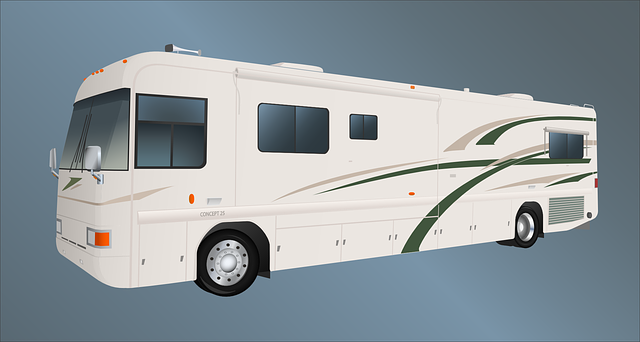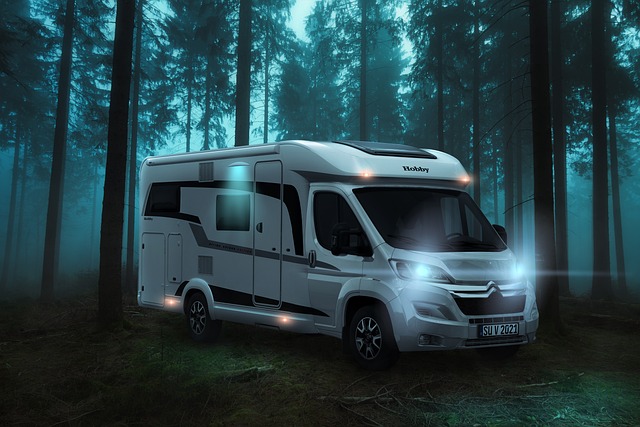When selecting an RV battery for cold weather, it's crucial to prioritize types that maintain performance at low temperatures. Traditional lead-acid batteries can freeze and are less reliable in winter conditions, whereas Absorbed Glass Mat (AGM) and lithium (lithium-ion and lithium iron phosphate) RV batteries offer superior cold weather resilience with better energy density, lighter weight, and resistance to extreme temperatures. Lithium batteries, in particular, can retain capacity down to negative 40 degrees Fahrenheit, outperforming lead-acid options that may fail above freezing. Key factors include a high cold cranking amps (CCA) rating, good reserve capacity (RC), and selecting the right size battery for your needs along with proper insulation to ensure longevity and efficiency. Consider deep cycle batteries for frequent discharges, but be aware of their reduced lifespan in winter without proper care. AGM and lithium RV batteries are recommended for their consistent energy output and resilience against cold temperatures. Always review the warranty terms for coverage specific to cold weather use to ensure your RV battery's reliability throughout the year, regardless of temperature.
When the mercury dips, ensuring your RV batteries can withstand the cold is paramount. This article delves into selecting the optimal RV battery for frigid conditions. We’ll explore battery types and their performance in cold weather, the effects of temperature on longevity and efficiency, and key specifications to prioritize for a durable power source during your winter escapades. A comparative analysis between deep cycle and AGM batteries in cold scenarios is also provided. Additionally, maintenance tips are offered to extend your RV battery’s lifespan when facing low temperatures. Before making a purchase for your next adventure in colder climates, consider the factors that distinguish ordinary from exceptional performance in the chill.
- Understanding RV Battery Types and Their Cold Weather Performance
- The Impact of Temperature on RV Battery Life and Functionality
- Key Specifications to Consider When Selecting RV Batteries for Cold Environments
- Deep Cycle vs. AGM: A Comparative Analysis for Cold Weather RV Use
- Cold Weather Maintenance Tips to Extend Your RV Battery's Lifespan
- Shopping for RV Batteries: Factors to Evaluate Before Purchasing for Cold Regions
Understanding RV Battery Types and Their Cold Weather Performance

When selecting RV batteries for cold weather conditions, it’s crucial to understand the different types available and their respective performance characteristics under low temperatures. Lead-acid batteries, such as traditional flooded lead-acid (FLA) models, are known for their reliability and lower cost but tend to struggle in freezing environments. The acid within these batteries can freeze, expanding and potentially cracking the battery casing, leading to a reduced lifespan or even immediate failure. On the other hand, absorbed glass mat (AGM) batteries offer improved performance in colder climates due to their design, which includes fiberglass mats that absorb the electrolyte solution, reducing the risk of freezing and spillage. AGM batteries are also sealed, which protects them from environmental factors and makes them more resilient to temperature fluctuations.
Furthermore, lithium RV batteries stand out as an excellent choice for cold weather applications. Lithium-ion and lithium iron phosphate (LiFePO4) batteries boast exceptional performance in sub-zero temperatures, with a higher energy density and lighter weight compared to traditional lead-acid options. They are less prone to being affected by cold, ensuring consistent power output even when the mercury dips. Additionally, lithium batteries have a longer lifespan and are more resistant to the harsh conditions often encountered during RV travel in colder regions. When choosing an RV battery for cold weather use, it’s important to consider these factors to ensure a reliable power source throughout your journey, regardless of the external temperature.
The Impact of Temperature on RV Battery Life and Functionality

When selecting RV batteries for cold weather conditions, understanding the impact of temperature on their life and functionality is paramount. Temperature extremes can significantly affect the performance and longevity of RV batteries. In particularly cold environments, conventional lead-acid batteries can become sluggish and may even fail to hold a charge due to reduced chemical activity at lower temperatures. This is where AGM (Absorbent Glass Mat) or lithium RV batteries excel; they are engineered to endure colder climates without losing efficiency. For instance, lithium batteries maintain their capacity in temperatures as low as minus 40 degrees Fahrenheit, a stark contrast to the performance of traditional lead-acid options which can be compromised above freezing. It’s crucial to choose RV batteries that not only provide reliable power but also ensure consistent operation throughout a range of temperatures, guaranteeing your mobile adventures are powered without interruption, regardless of the season. Proper battery insulation and selecting the right type of battery for your RV’s expected climate are key considerations to extend the lifespan of your RV batteries in cold weather conditions.
Key Specifications to Consider When Selecting RV Batteries for Cold Environments

When braving the cold with an RV, ensuring your power supply remains reliable is paramount. RV batteries chosen for use in low-temperature environments must be robust enough to handle freezing conditions. To select the right rv battery for your needs, consider several key specifications. Firstly, look for batteries with a high cold cranking amps (CCA) rating; this indicates the battery’s ability to start an engine in cold weather. A higher CCA means better performance at low temperatures. Additionally, check the reserve capacity (RC), which measures how many minutes a fully charged battery can deliver 25 amperes without falling below 1.75 volts per cell. While RV batteries are designed to endure varying climates, ensuring your unit is appropriately sized for your power consumption and has sufficient insulation will further enhance its longevity and efficiency in cold weather conditions. Optimal temperature operation is crucial for the health and performance of your rv battery, so choose a model that can withstand the elements you’ll encounter on your journey.
Deep Cycle vs. AGM: A Comparative Analysis for Cold Weather RV Use

When selecting RV batteries for cold weather conditions, understanding the differences between Deep Cycle and Absorbent Glass Mat (AGM) batteries is crucial. Deep Cycle batteries are traditionally designed for applications where deep discharges are frequent, making them a popular choice for RVs due to their ability to handle many charge-discharge cycles. However, their performance can be compromised in cold temperatures as the viscosity of the electrolyte thickens, reducing the battery’s efficiency and capacity. This can lead to a shorter lifespan if not properly maintained during winter months.
In contrast, AGM batteries offer superior performance in colder climates. The absorbed electrolyte in AGM batteries reduces the risk of freezing compared to the freely flowing electrolyte in Deep Cycle batteries. This design feature allows AGM batteries to maintain a consistent and reliable energy output, even when temperatures drop significantly. Additionally, AGM batteries are less prone to being overcharged, which is a common concern with lead-acid batteries. For RVers planning to travel or camp in cold environments, AGM batteries present a more robust solution, ensuring that the power supply remains consistent and dependable, regardless of the external weather conditions. When considering rv battery choices for your RV, it’s important to weigh the pros and cons of each type, especially with regard to their resilience against the challenges brought on by cold weather.
Cold Weather Maintenance Tips to Extend Your RV Battery's Lifespan

Shopping for RV Batteries: Factors to Evaluate Before Purchasing for Cold Regions

When selecting RV batteries suited for cold weather conditions, it’s crucial to consider the battery type and its capacity to function in sub-optimal temperatures. Deep cycle lead-acid batteries, for instance, can be prone to freezing and require a protective environment or heated enclosures to ensure optimal performance during the winter months. Alternatively, absorbed glass mat (AGM) or lithium-ion RV batteries are more resilient in cold environments, as they don’t suffer from memory effect issues like traditional lead-acid batteries and can retain their charge at lower temperatures.
Another critical factor is the battery’s capacity rating; this determines how much power you’ll have available for your RV’s electrical needs. For cold regions, a higher ampere-hour (AH) rating means more energy storage, which is essential when the sun isn’t shining or the engine isn’t running to recharge the battery. Additionally, consider the temperature tolerance of the battery. Manufacturers often specify the operational range for their batteries, and selecting one that can handle the lowest expected temperatures in your travel plans will prevent performance degradation or potential failure. It’s also wise to look into the warranty terms and what they cover, particularly regarding cold weather usage. This due diligence ensures that you’re prepared for the demands of winter RVing with a reliable power source that matches your lifestyle and climate needs.
When selecting an RV battery suitable for cold weather conditions, understanding the nuances of each type and their performance under low temperatures is paramount. This article has delved into the critical factors that influence RV battery life and functionality in colder climates, from the impact of temperature to the comparison between deep cycle and AGM batteries. By considering key specifications and following maintenance tips tailored for cold environments, RV enthusiasts can ensure their batteries remain reliable despite the chill. Before making a purchase, it’s essential to evaluate the battery’s specifications and how well it withstands freezing temperatures. Armed with this knowledge, you can confidently choose an RV battery that will serve you well, regardless of the thermometer reading.
